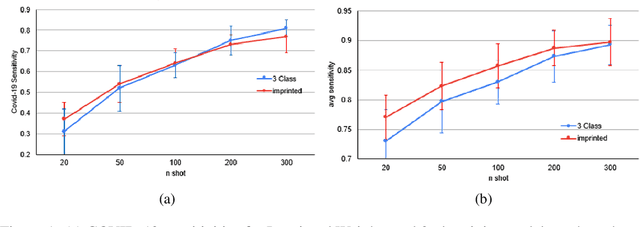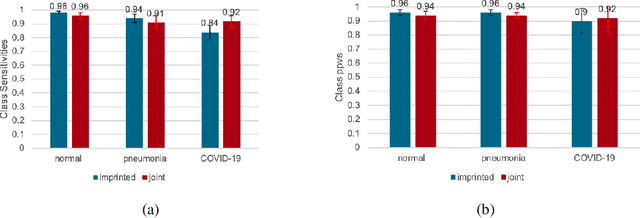COVID-19 Detection from Chest X-ray Images using Imprinted Weights Approach
Paper and Code
May 04, 2021


The COVID-19 pandemic has had devastating effects on the well-being of the global population. The pandemic has been so prominent partly due to the high infection rate of the virus and its variants. In response, one of the most effective ways to stop infection is rapid diagnosis. The main-stream screening method, reverse transcription-polymerase chain reaction (RT-PCR), is time-consuming, laborious and in short supply. Chest radiography is an alternative screening method for the COVID-19 and computer-aided diagnosis (CAD) has proven to be a viable solution at low cost and with fast speed; however, one of the challenges in training the CAD models is the limited number of training data, especially at the onset of the pandemic. This becomes outstanding precisely when the quick and cheap type of diagnosis is critically needed for flattening the infection curve. To address this challenge, we propose the use of a low-shot learning approach named imprinted weights, taking advantage of the abundance of samples from known illnesses such as pneumonia to improve the detection performance on COVID-19.
 Add to Chrome
Add to Chrome Add to Firefox
Add to Firefox Add to Edge
Add to Edge